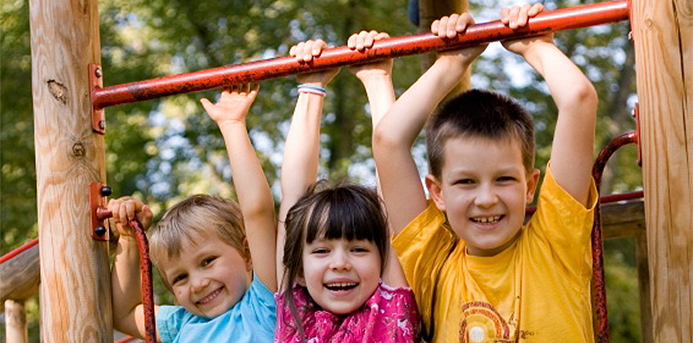When you think of classic movies like “The Sandlot,” “Little Rascals” or “Now & Then,” there is a common theme among them: the summers of our childhood. And throughout these movies we witness the adventures, mishaps and entertainment brought about by what child specialists call “free play.” Free play is voluntary, unstructured activity completely initiated by children. Think of the boys in “The Sandlot” brainstorming various ways to get their baseball back from “The Beast,” or the girls in “Now & Then” investigating the death of Dear Johnny. There were no parents telling them what to do, no coaches or camp counselors guiding their daily activity.
“People aren’t outside playing anymore,” says Liza Sullivan, Executive Director at the Alliance for Early Childhood.
Sullivan says that now children are signed up for camps and a multitude of other activities that are structured by adults. She says that while adult-directed activities aren’t bad, they don’t make up for the creativity and socialization brought about by free play.
The Alliance for Early Childhood is working to bring back free play to the North Shore neighborhoods of Chicago through their 5th Annual Park-A-Day Challenge. The event will run Monday, June 8 through Friday, June 12 from 9 a.m. to noon, and each day of activities will take place at a different neighborhood park. Activities range from baseball and flag football to yoga and making instruments.
“We wanted to do the Park-A-Day Challenge to gather parents together so they could have the topic of free play at the forefront of conversation, and we also wanted parents to be aware of the beautiful play spaces in our communities,” Sullivan says.
Free play is important because it gives children the opportunity to use their imaginations to invent new worlds or new games, play with children of mixed age groups and to negotiate and work through problems together without parental intervention, according to Sullivan.
Research from a 2014 study conducted by psychologists at the University of Colorado found that children who experience more free play have better self-directed executive functioning, which means they have a greater ability to know what goal-directed actions to carry out when.
“It’s […] rich play that we’re trying to bring back, and bring back to parents’ awareness,” Sullivan says.
This year the alliance is prototyping a new format, where they will partner with a number of organizations—such as the Evanston Art Center, the Music Institute of Chicago and the Lincoln Park Zoo—that will help provide various materials and ideas for the children to utilize during the week.
“We hope this is a model to give parents a reason why child-initiated play is so important, but then also giving them some ideas they will […] be able to go home and replicate in the summer,” Sullivan says.
Look here for the schedule of events. Please also note this is not a drop-off program. Caregivers must attend with their children.
Find more ways to get involved here:

